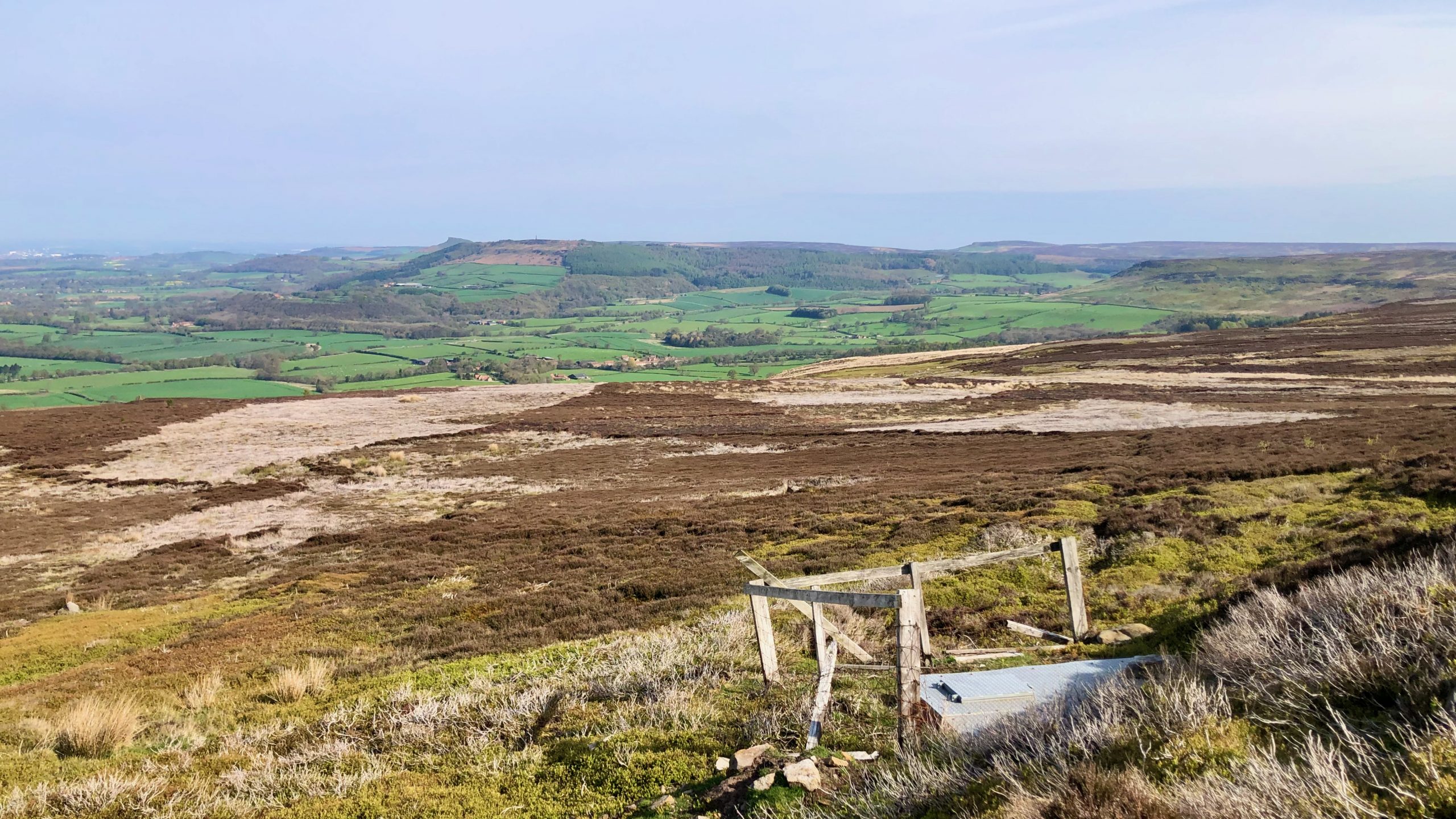“The Three Sisters,” Ingleby-Greenhow
by George Markham Tweddell
Three tiny streamlets, on the barren moor,
Were glittering ’neath the bright rays of the sun:
Pleasant it was to mark, where’er they run
Along the summit of the mountain hoar,
How beautiful rich mosses mark’d their way!
These steams united, and went trickling on
To add their waters to the neighb’ring burn,
Which help’d to feed a river, where you may
Float largest argosies; then to the sea,—
Again to float in mists unto the sky,
And fall in dew or rain,—mayhap to fly
In hail or snowflakes over hill or lea!
Nothing in nature e’er is lost!—shall we
Then doubt, in God’s good time, all will from pain be free?
George Markham Tweddell was known as the Cleveland Bard and was a prolific writer of poetry. At the age of 19, Tweddell established the ‘Stokesley News and Cleveland Reporter‘, a monthly newspaper, in November 1842, using the printing press licence of his apprentice master, William Braithwaite, who was a Stokesley printer and publisher. However, Braithwaite withdrew his approval in December 1842 after receiving complaints from local Conservatives about the newspaper’s political bias. George independently published the third edition in January 1843, which he probably funded with help from his uncle, John Taylor, a draper from Stokesley. Later that month, he obtained a license in his own name.1‘Tweddell Poetry.co.uk ’. 2023. Tweddellpoetry.co.uk <http://www.tweddellpoetry.co.uk/> [accessed 3 May 2023]
“The Three Sisters” refers to three springs above Turkey Nab draining into Otter Hills Beck, which flows into the River Leven at Easby. They are named on the early O.S. map. The photo is taken above one of the springs, which has been capped off with a metal cover. In the distance is Coate Moor and Capt. Cook’s Monument.
In 1931, Stokesley Rural Council used these springs to build a water supply for the villages of Broughton, Kirby, Great and Little Busby, Carlton, Potto and Hutton Rudby, at a cost of £18,7002‘Spring Water Supply for Seven Villages | Yorkshire Post and Leeds Intelligencer | Saturday 10 January 1931 | British Newspaper Archive’. 2023. Britishnewspaperarchive.co.uk <https://www.britishnewspaperarchive.co.uk/viewer/bl/0000687/19310110/225/0006> [accessed 4 February 2023]. The scheme was evidently a success as, in the drought of 1934, when milk production from dairy cows suffered and farmers had to cart water from nearby streams, Stokesley Council reported “that [their supply] was adequate, and no anxiety was entertained for the rest of the summer.“3‘LOT OF RAIN WANTED | Daily Gazette for Middlesbrough | Friday 13 July 1934 | British Newspaper Archive’. 2023. Britishnewspaperarchive.co.uk <https://www.britishnewspaperarchive.co.uk/viewer/bl/0000159/19340713/242/0009> [accessed 4 February 2023]
- 1‘Tweddell Poetry.co.uk ’. 2023. Tweddellpoetry.co.uk <http://www.tweddellpoetry.co.uk/> [accessed 3 May 2023]
- 2‘Spring Water Supply for Seven Villages | Yorkshire Post and Leeds Intelligencer | Saturday 10 January 1931 | British Newspaper Archive’. 2023. Britishnewspaperarchive.co.uk <https://www.britishnewspaperarchive.co.uk/viewer/bl/0000687/19310110/225/0006> [accessed 4 February 2023]
- 3‘LOT OF RAIN WANTED | Daily Gazette for Middlesbrough | Friday 13 July 1934 | British Newspaper Archive’. 2023. Britishnewspaperarchive.co.uk <https://www.britishnewspaperarchive.co.uk/viewer/bl/0000159/19340713/242/0009> [accessed 4 February 2023]

Leave a Reply